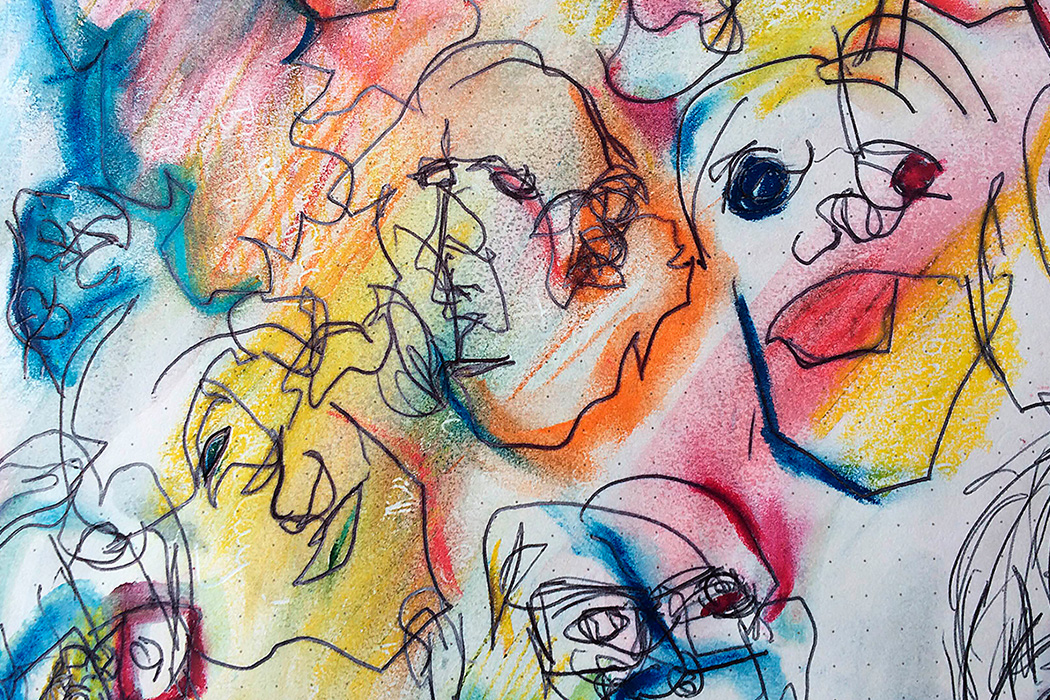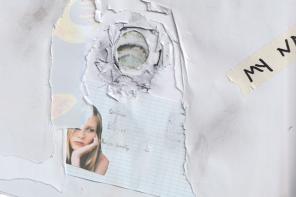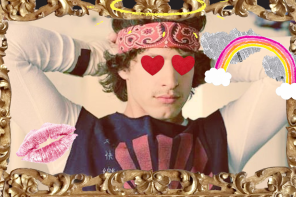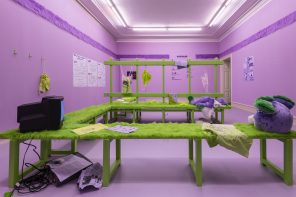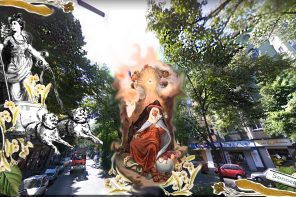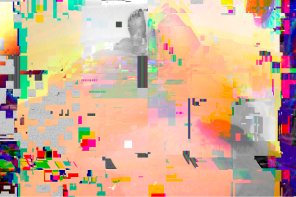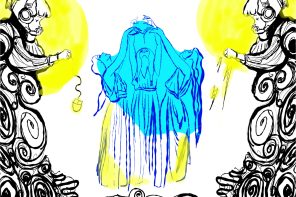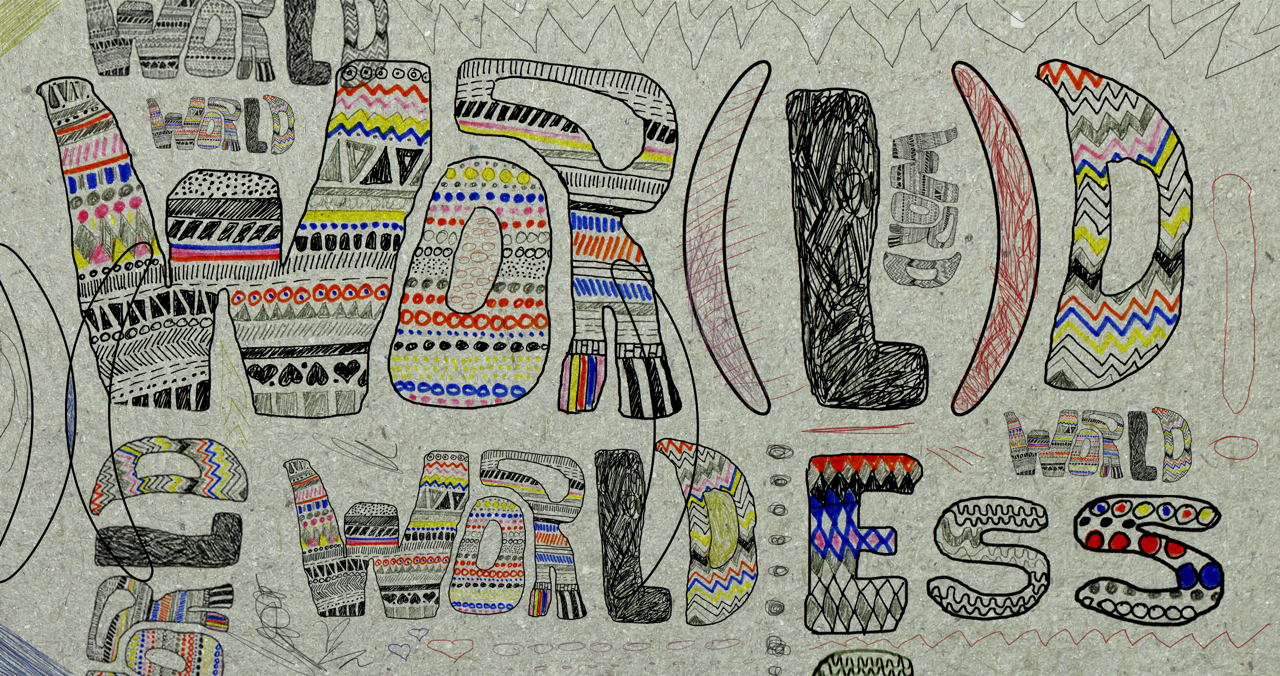The second time I went out socially after moving to London, a stranger forced me under pressure to out myself to the group we were sitting with, while discussing how much he’d love to watch me kiss an imagined girlfriend, how he’d relish taking me home, how he wasn’t homophobic because he thought I was ‘beautiful’. It was graphic, it seemed to go on forever, and the rest of the night was a blur. The majority of my group were my peers from a recently started graduate program, whom I hadn’t come out to because I had assumed there would be a right time, that we were all adults and it couldn’t possibly matter. Mortified and scared for my own safety, I stopped socializing for several months afterward – I was convinced that I couldn’t trust the people around me, but more than that, I was convinced that I couldn’t trust myself.
Mostly, I was embarrassed because it felt like I had failed, not only at representing myself accurately, but at performing healthy queer adulthood. The dominant gay narrative of linear upward progression is pervasive: that of moving from one’s hometown to a major metropolitan city, finding community and love there, and hopefully ending up in a state-recognized marriage. Adulthood is presented as the absence of problems or rather, of personal problems, of problems turned in toward the family, not outward and on display for the world to see. My image of myself, and my perception of others’ image of me, was as a well-adjusted queer, and to be well-adjusted in our society is to hide the impact of traumatic experiences. My own difference, and my own audacity to assert it, was on display in that moment for everyone to see.
This vision of healthy, stereotypical gay adulthood in relation to the political rhetoric surrounding gay marriage contributes to pushing queer people with overlapping oppressions away from community and toward isolation. Our vision of homophobia centers on discrimination as experienced by gay white men, and means the rest of us, whose experiences reflect complex interplays of gender, race, class, and other issues, are left without language to express our needs and legitimize both our positives and negatives. This lack of context for ourselves and our experiences, while it can be freeing, can also leave us isolated. We are told that the way out of oppression is to conform, and that not conforming means that we deserve what comes to us. In this conformity toward supposed health, adulthood, and safety, we risk missing out on opportunities to think critically about our experiences, the way we treat others, healing, communication, and the multilayered relationships possible through a diverse and engaged community.
This idealized path shaped my own formative experiences with my sexuality. As a teenager, my first LGBT+ spaces were dominated by young, heteronormative gay men, and were focused on marriage as the one and only way toward a better future. Casual sexism was rampant, racism was never discussed, and sexual behavior and expression were policed in stereotypical ways – drawing lines around groups deemed undesirable, and those worthy of attention and respect. Our discussions of violence focused on far-off physical assault by strangers and slurs specific to gay white men. These were the most easily digestible stories we could find, and they relegated struggle and unpalatable truths safely to the past, creating an edited version of our history.
These groups were also my first opportunity to be seen as something more than the sum of the expectations of others, and I wanted to be visible, to attract others like me, and to belong. At the same time, I was experiencing harassment from my male peers, along with adult men, who frequently ogled my relationships. They insisted on their right to watch our interactions and invade our private spaces. In several instances, this escalated to overt harassment and assault. I was told often that these experiences weren’t really homophobic or to do with my sexuality at all: they were more about my gender – as though those two things are always separable and without overlapping incident. My experiences and the experiences of others like me fell so far outside of what I had been taught to expect in terms of homophobia and how a ‘victim’ should look that it took me years to acknowledge that there was anything to heal, let alone start healing.
This was part of a larger struggle to feel like a valid queer woman on my own, when so much of that worth seemed to be tied up in having the right kind of romantic relationship. Gay marriage became legal in all 50 US states earlier this summer, and while I was happy for the people I care about, I am still carrying bitterness. Marriage does allow for a particular kind of recognition for those who want it, and can be a tool for some to circumvent various legal and administrative systems. Indeed, marriage in a personal sense is a flexible and complex definition. However, in terms of State definition, recognition, and usage, marriage functions as a structure of control, which is obvious in everything from the kinds of questions asked in so called ‘fraud interviews’ for marriage-based green cards (what exactly makes a legal marriage fraudulent?) to the fact that plenty of queer people in the US still cannot get married because they’d lose student/disability/other benefits vital to their survival.
The rhetoric of gay marriage as ‘the’ civil rights struggle has conflated state recognition of a very specific kind of relationship with basic human dignity. In the days and weeks after the Supreme Court decision, many people implied that our dignity was now secure and that we could all go home happy. My dignity and the worth of my sexuality are not wrapped up in having a relationship recognized at this standard. Likewise, such a relationship will not save me from the homophobia and sexism I experience. It will not absolve the need for supportive community in a hostile society. The time I spent attaching the validity of my sexuality to my ability to have a very traditional relationship with another woman was a time when I was a terrible partner, an inconsiderate friend, a selfish lover, and a competitive person bent on putting others down to pull myself up to safety.
Though performing relationships differently in different spaces is often a matter of survival for many queers and marginalized peoples, attaching safety to conformity is a tool used to enforce the status quo. Feeling pushed toward a romantic relationship as a form of salvation – not only in the traditional, gendered sense, but also in the sense of an escape from anti-gay bigotry – pushed me toward people I loved without the skills, outlets, or support to be good to them. Finding supportive communities changed everything – I finally acknowledged my need for their support and their stories to contextualize myself, as well as my need to know my imperfections and explore my process in a setting where there is space for me. I am, and I think we are, better for admitting that the structures of nuclear-family normalcy are neither as cut and dry as society would have us believe, nor as definitely ‘enough’ as we would like to imagine.
Creating and sustaining a supportive community takes work. Even the most ‘radical’ groups among us are often not good at affirming one another, making space for differing narratives, or making sure activism is a common goal and not a competition. We are only human - our work is never in stasis and we can always do better. Since we know acutely the discomfort of being both excluded from broader society and excluded from the political communities and movements meant to be championing our rights, it is important that we deal with one another with self-awareness toward all of our mutual growth and challenges. My community, friends, lovers, partners, and family have led me to reevaluate my ideas about professionalism, love, work, life, interaction, and what I actually want from these scenarios. If I was naïve because of a lack of context, seeing others survive and thrive in nontraditional existence made these choices seem less painful and more possible.
My bitterness after the Supreme Court decision may stem in part from looking at editorials about how the U.S. now legally acknowledges ‘all families’, and knowing that definition of family cannot include the one I have chosen. In my experience with polyamorous relationships, marriage is a bit of a running joke because we have no way of pretzeling ourselves into it – never mind that I do not want the state involved in my romantic life, or that I do not see the dividing lines between friendship, romance, and sex as exclusive enough to sign a contract on. This version of what a family should look like leaves behind many different types of people who are already marginalized; whose families don’t fit the mold either by circumstance, chance, or choice. We are capable of supporting one another: of not enforcing the status quo upon others in order to save ourselves, being critical of the positions we come from, and breaking down barriers to build necessary relationships with one another. I refuse to believe that in the face of this push toward finite definitions of our queerness, our community support structures are no longer necessary. My queerness, our queerness, represents infinite possibilities, and the possibilities our communities allow us are still vital to survival.
Words and visual by Kiona H. Niehaus

